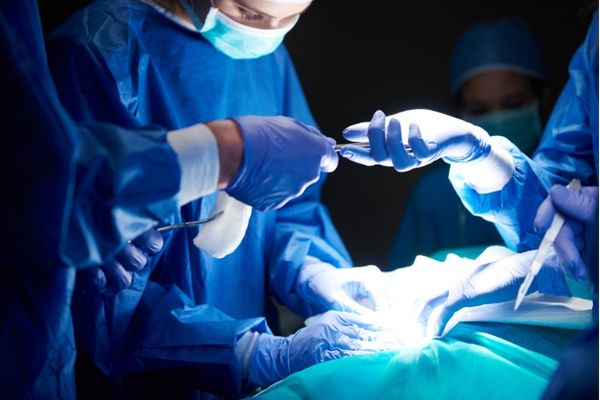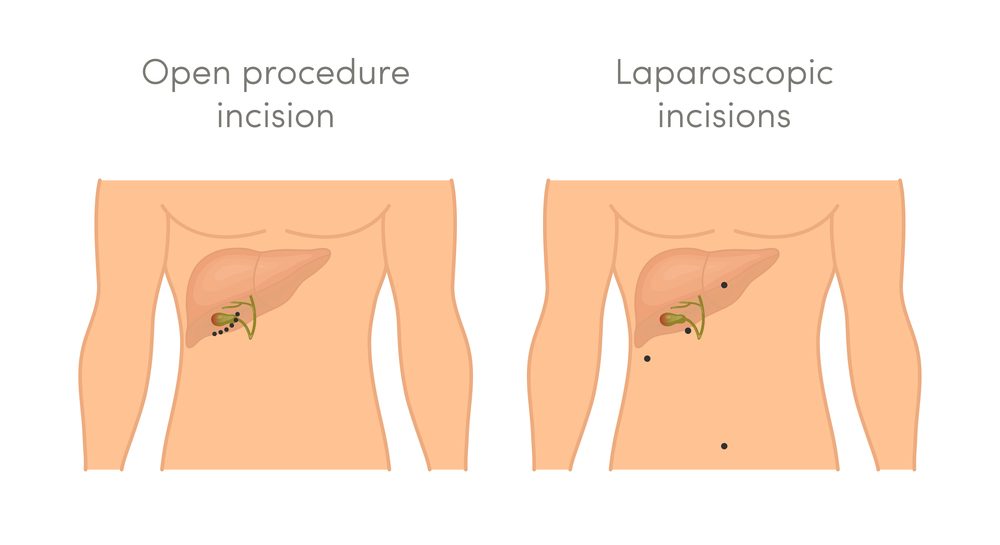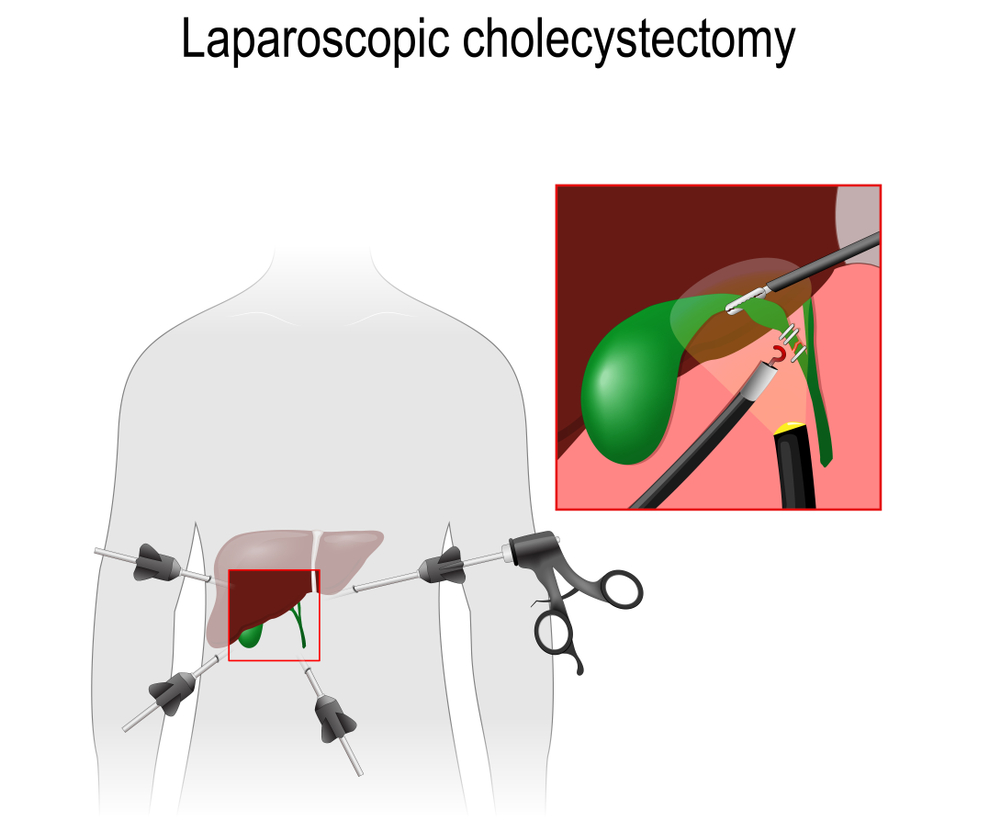Gallbladder Surgery in Turkey
Gallbladder Surgery at Vitale Hospital


What is Gallbladder Surgery?
Gallbladder surgery, or cholecystectomy, is a common procedure that involves the removal of the gallbladder, a small organ responsible for storing bile produced by the liver. The surgery is often performed when gallstones or other gallbladder issues cause pain, inflammation, or infection, affecting digestion and overall health. Cholecystectomy can be performed as an open surgery or through minimally invasive techniques like laparoscopic cholecystectomy, which is the preferred method due to faster recovery times and minimal scarring.
Table of Contents
ToggleIn Turkey, gallbladder surgery is performed by skilled surgeons using advanced medical technology, ensuring high success rates and patient comfort. Turkey is known for offering affordable, high-quality healthcare, making it a popular destination for international patients seeking gallbladder surgery.
Why is Gallbladder Surgery Performed?
Gallbladder surgery is typically recommended for individuals experiencing chronic pain or complications from gallstones or other gallbladder conditions. Here are the main reasons why gallbladder surgery is performed:
- Gallstones can obstruct the bile ducts, leading to intense pain and potential complications such as infections.
- Inflammation of the gallbladder can cause severe pain and fever, making surgery necessary to prevent further complications.
- Gallstones can sometimes block the pancreatic duct, leading to pancreatitis, a painful and potentially serious condition that may require gallbladder removal.
Removing the gallbladder can alleviate these symptoms and prevent future issues, as the body can still function without the gallbladder. The bile produced by the liver will flow directly into the small intestine, allowing for normal digestion.
Who is Eligible for Gallbladder Surgery?
Gallbladder surgery is suitable for patients who suffer from gallbladder-related issues that affect their quality of life. Here are some factors that make a patient eligible for cholecystectomy:
- Patients who experience frequent pain due to gallstones may benefit from surgery to prevent recurring episodes.
- In cases where gallstones cause inflammation, infection, or pancreatitis, surgery is often recommended to avoid further complications.
- Patients who do not find relief from dietary changes or medications are often advised to consider surgery as a long-term solution.
A medical consultation is essential to determine if gallbladder surgery is the right choice, as each patient’s condition and health status are considered before proceeding.
Open Gallbladder Surgery or Laparoscopic Gallbladder Surgery?
Gallbladder surgery, or cholecystectomy, can be performed in two primary ways: open surgery or laparoscopic (minimally invasive) surgery. Each method has its benefits and may be recommended based on the patient’s specific condition, health status, and the complexity of the surgery.
Laparoscopic gallbladder surgery is the most common approach due to its minimally invasive nature. Here are the main features and advantages:
- Procedure, small incisions are made in the abdomen, and a laparoscope (a thin tube with a camera) is inserted to provide a clear view of the gallbladder. Tiny instruments are used to remove the gallbladder through these incisions.
- Recovery time, since the incisions are small, patients typically experience faster recovery, less pain, and minimal scarring. Most patients can return to light activities within a week and resume normal activities within 2-3 weeks.
- Less risk of complications, laparoscopic surgery generally has a lower risk of infection and other complications compared to open surgery.
- Shorter ohpital stay, patients can usually go home the same day or the day after surgery, reducing the need for extended hospital stays.
Laparoscopic surgery is preferred for most cases due to its minimally invasive nature. However, certain situations may require open surgery instead.
Open gallbladder surgery is a more traditional approach that involves a larger incision, typically 5-7 inches, on the right side of the abdomen to access and remove the gallbladder. This method may be recommended in certain cases:
- Complex cases, open surgery may be necessary if there is significant inflammation, scarring from previous surgeries, or other complications that make laparoscopic surgery challenging.
- Procedure, the larger incision allows the surgeon a clear view and direct access to the gallbladder, which may be essential in certain high-risk cases.
- Recovery Time, recovery from open surgery is generally longer, with patients taking 4-6 weeks to resume normal activities. Pain and discomfort are typically more pronounced due to the larger incision.
- Extended hospital stay, patients usually stay in the hospital for a few days after open surgery to monitor recovery.
Which Option is Right for You?
Most patients are candidates for laparoscopic gallbladder surgery due to its minimally invasive nature, faster recovery, and reduced risk of complications. However, open surgery may be the better choice for patients with complex medical conditions or those with severe inflammation or scarring around the gallbladder.
Ultimately, the choice between open and laparoscopic gallbladder surgery will depend on the patient’s health, the complexity of the surgery, and the surgeon’s recommendation. Consulting with a skilled surgeon can help determine the best option for safe and effective treatment.
How is Gallbladder Surgery Performed in Turkey?
Gallbladder surgery in Turkey is most commonly performed as a laparoscopic cholecystectomy, which is minimally invasive and involves a shorter recovery time. Here’s an overview of how the procedure is done:
Pre- and Post-Operative Care for Gallbladder Surgery in Turkey
Before Surgery:
- A detailed consultation with a surgeon is required to discuss the procedure, potential risks, and expected outcomes.
- Patients may need to fast for several hours before surgery and avoid certain medications, such as blood thinners, to reduce bleeding risks.
- Some patients are advised to follow a low-fat diet in the days leading up to surgery to ease digestion.
After Surgery:
- Following the surgery, patients should start with a liquid diet and gradually reintroduce solid foods. Eating smaller, low-fat meals is recommended to support digestion.
- Mild pain or discomfort at the incision sites is common and can be managed with prescribed pain relievers.
- Patients should avoid heavy lifting and strenuous activities for a few weeks to allow the incisions to heal.
- A follow-up appointment is essential to monitor recovery, check the incision sites, and ensure there are no complications.
Following these guidelines can help ensure a smooth recovery, allowing patients to resume their normal activities within a few weeks.
Doctors
Op. Dr. Tamer KAVASOĞLU
General Surgery Specialist

How Much is a Gallbladder Removal Surgery Cost in Turkey?
The cost of gallbladder surgery in Turkey is lower than in many Western countries, making it a popular destination for medical tourists. The cost can vary depending on the type of surgery and the surgeon’s expertise. The total cost includes;
- Pre-operative consultations and evaluations
- Laparoscopic cholecystectomy procedure
- Post-operative monitoring and follow-up care
Vitale Hospital offers all-inclusive packages covering the cost of surgery, accommodation and other services, providing international patients with high-quality care at competitive prices.
FAQ
Yes, gallbladder surgery in Turkey is performed by highly qualified surgeons using advanced technology. Turkey’s hospitals meet international standards, making the procedure safe and effective.
Most patients can return to light activities within a week and resume normal activities within 2-3 weeks. Full recovery may take up to a month, depending on the patient’s health.
Cholecystectomy is considered a low-risk procedure, especially when performed laparoscopically, which has a high success rate and low complication risk. However, like any surgery, it carries some risks, such as infection or bleeding, which are typically minimal with experienced surgeons and proper post-operative care.
No, the liver doesn’t work harder after gallbladder removal; it continues to produce bile as usual. Instead, the bile flows directly into the small intestine rather than being stored, which may cause slight digestive adjustments but generally doesn’t strain the liver.



